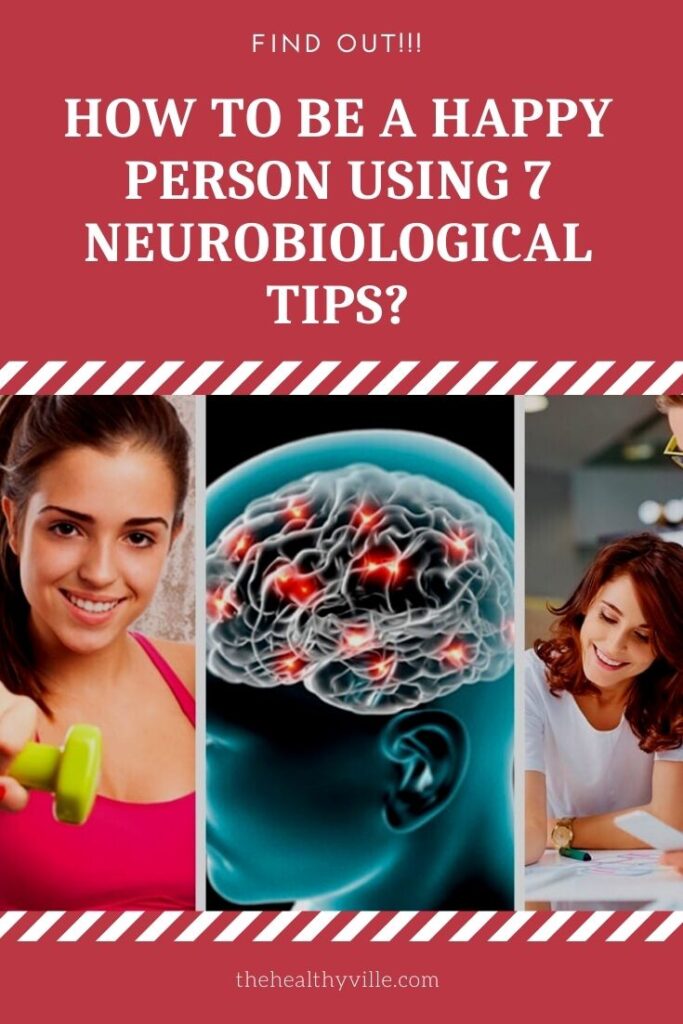How to be a happy person in general? There are some neurobiological tips you can use to improve the quality of your life. Find out all about them!
There are many actions that, despite their simplicity, have a great effect on our body. Discover them!
Here are 7 neurobiological tips to help you be happier from a holistic perspective. How is it possible? Very easy, through your brain. Because, in fact, by taking into account what actions can favor it, we will promote positive changes in the body.
When we achieve that the functions of our organism are in balance and we enjoy good health, we will enjoy a feeling of well-being that will help us to be happy.
Discover with us how to be a happy person, how you can use your own brain to favor those biological processes that generate, among its multiple reactions, the segregation of well-being hormones.
7 neurobiological tips on how to be a happy person
-
Always be thankful
Gratitude is not only a mere verbal expression. It is a gesture that is accompanied by an emotion that is beneficial, both for those who feel it and for those who receive the thanks.
When we thank a person we put ourselves on the positive side of life. Thanks to this, the production of serotonin in the anterior cingulate cortex is stimulated. This is a method that therapists use in some cases to combat depression.
-
Be proactive or decisive
When an individual has a problem and wants to find a possible solution, the brain tries to work towards it. In order to come up with a solution, the brain needs energy. Therefore, energy expenditure can cause anxiety and irritation to the person.
However, when the brain makes the decision to perform an action, neurotransmitters are activated that serve to calm the limbic system. In this way, it helps to see the world in a more positive way.
In this sense, it is necessary to carry out actions that help the brain to release the stress caused by the search for solutions to a conflict.
Neurobiological advice tells us that we must have a proactive attitude, since in this way we can find solutions without affecting the body.
-
Express yourself! Get rid of negativity
Another of the most effective neurobiological tips is the verbalization or expression of our inner world. When you release your thoughts, you feel better about yourself and you don’t harbor negative emotions that can harm your body.
Remember that keeping negativity can cause the body to somatize problems, as occurs in cases of anxiety and stress.
By expressing your thoughts and releasing tension through it, your brain will begin to produce serotonin and will even be able to see the positive side of some unpleasant situations. Moreover, multiple areas of the brain will be activated.
-
Social interaction
For humans, social interaction is very important. Specifically, what we need most is social support, especially caresses and hugs. And it is that these gestures are the ones that help us to recover faster from different ailments and after diseases.
If we could not enjoy human contact in our lives, our brain will perceive this loss as if it had physical pain because they respond in the same areas. Consequently, processes that affect mood will begin and could end up leading to depression.
-
Don’t stop learning
Don’t stop giving your brain constantly new information. This will cause the brain to perceive a constant change in the environment to which it will have to try to adapt.
Each time it undergoes this adaptation process, the brain continues to develop and rewards itself with dopamine, the hormone of joy. It does all of this by receiving and processing new information. So if you want to be or feel happier, you already know what the solution can be.
-
Exercise
When we exercise, endorphins are released. It is at that moment when the pituitary gland is given as a reward. Аnd the brain perceives an effect similar to that of consuming morphine. In this way, it reduces the pain that may be experienced and promotes well-being. Simply with a long walk you can already feel this effect.
-
Sleep well
When we sleep in the dark we produce the hormone melatonin. This hormone is responsible for slowing down all processes in the body, and helps it to recompose itself. In other words, this causes an increase in serotonin in the hypothalamus.
Therefore, if the brain perceives that there is a change in the lighting in the bedroom, it will begin to secrete the stress hormone. Аnd will end up waking up the body. In this sense, it is best to try to sleep between 6 and 8 hours a day in a dark room if possible.
As you have seen, happiness lies in an integral balance based on psychological, social and physical aspects. All this will affect our body, because its effects are real.
Therefore, follow these neurobiological tips, and you will see the positive impact on your well-being.
Don’t forget to SHARE the neurobiological tips on how to be a happy person with your friends and family on your social networks!

